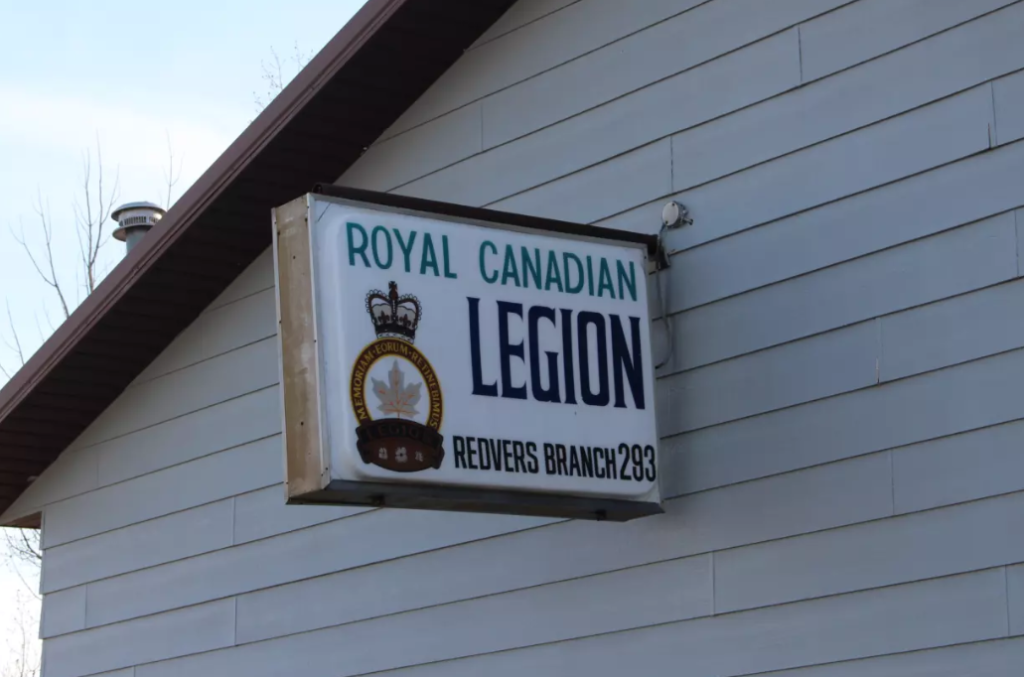The Royal Canadian Legion is a public house subject to the right of candidates running in the ongoing 45th Federal Election to make reasonable use of the premises in order to promote Canadian nationalism:
Right of Candidates to Campaign in Public Places
No person who is in control of a building, any part of which is open without charge to members of the public, whether on a continuous, periodic or occasional basis – including any commercial, business, cultural, historic, educational, religious, governmental, entertainment or recreational place – may prevent a candidate from campaigning in that part when it is open without charge to members of the public.
– Section 81.1(1), Canada Elections Act

RCL Branch #293 in Redvers is no exception to this rule. When the writ is in force, election candidates are entitled to make reasonable use of the space.
Provincial Public Works and Property to be Property of Canada
“Custom Houses, Post Offices, and all other public buildings, except such as the Government of Canada sees appropriate for the use of the provincial legislatures and governments.”
– Third Schedule(8), British North America Act (1867)
The Canada Elections Act sets out the rights of candidates and their representatives to canvass and campaign in public places.
A person gains the rights of a candidate to canvass and campaign in certain locations under section 81 and 81.1 when their nomination is confirmed by the local returning officer.
After election day (April 28th), the rights pursuant the Canada Elections Act empowering candidates to the use of public places for campaigning expires. This is not to say that a political entity loses the right to use public property for campaign purposes, only that the provisions contained in the Canada Elections Act cease to apply after April 28th.
A person who claims to be in control of a public building must identify themselves if they are invoking an exception to deny candidates and their representatives the right to campaign there.
A wide variety of locations that are open free of charge to the public, even if privately owned, qualify as public places.
When deciding whether to invoke an exception to the right of access for canvassing or campaigning, the person in control of the premises should interpret the candidate’s right broadly in light of the democratic principles at stake and must treat all candidates equitably.
The person in control of a premises may be committing an offense if their decision to deny access is not based on an applicable exception.
Every person in control of premises who refuses to give access to a building open to the public when an exception does not apply is guilty of an offense.
Election Offenses requiring intent — summary conviction
Every person who contravenes subsection 81.1(1) (refusal to give access to place open to the public) is guilty of an offense.
– Section 486(2), Canada Elections Act

The reason many of these Legion branches are on the brink of insolvency is because they are managed by people who do not represent the values held dear by Canadians.
For the sake of our national heritage, it may be time for a changing of the guard at the Royal Canadian Legion …